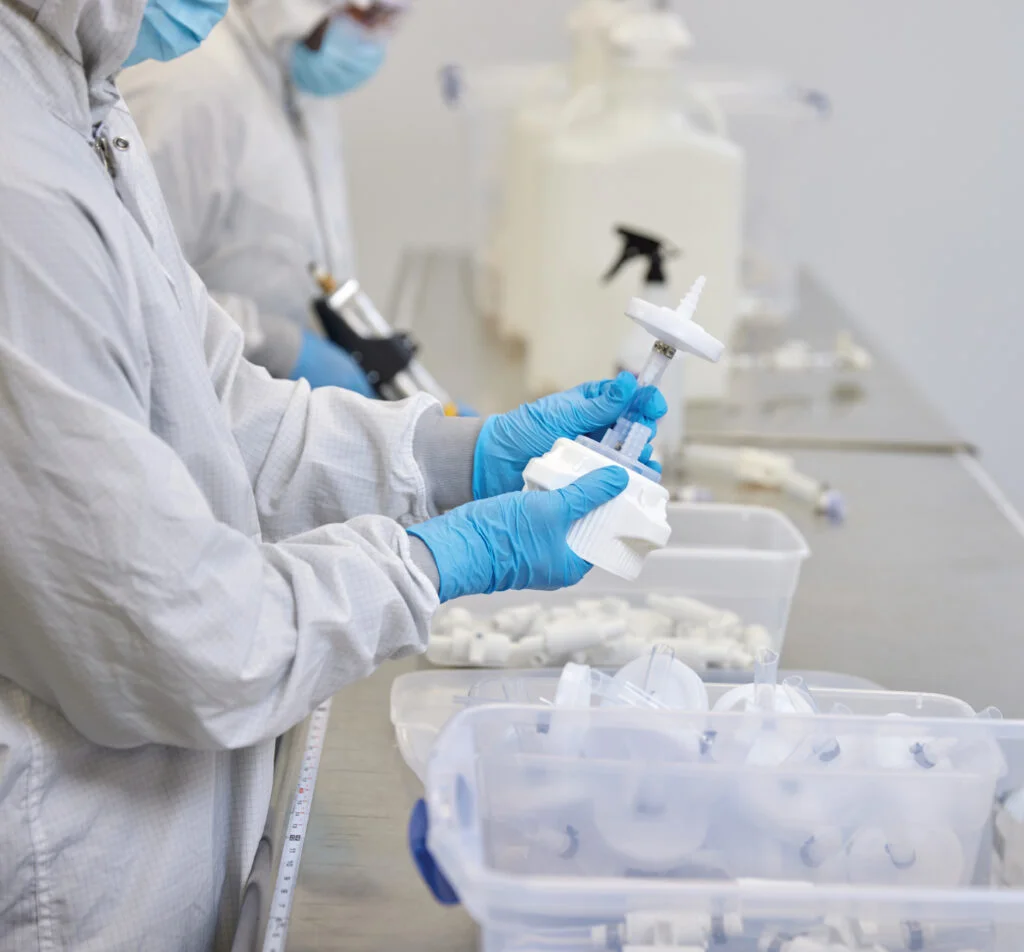Lifescience wholesale distributors play an essential role in the healthcare and pharmaceutical industries, providing critical services that ensure the supply of medicines, medical devices, and laboratory equipment. These distributors act as intermediaries between manufacturers and end-users, including hospitals, clinics, research institutions, and pharmacies. They are an integral part of the supply chain, helping to streamline the process, reduce costs, and ensure timely delivery of essential products. In this article, we will explore the significance of Lifesciences wholesale distributors, their functions, and the benefits they offer to healthcare providers and patients.
What is a Lifescience Wholesale Distributor?
A lifescience wholesale distributor is a company or entity that purchases products in bulk from manufacturers, such as pharmaceutical companies, medical device producers, or laboratory supply firms, and then sells them to various businesses in the healthcare sector. These businesses can range from hospitals, pharmacies, and outpatient clinics to universities and research laboratories.
Unlike direct-to-consumer sales, wholesale distributors typically operate on a B2B (business-to-business) model, providing the necessary logistical support to ensure that life-saving products reach the right hands. They work with a variety of products, including prescription drugs, over-the-counter medications, vaccines, diagnostic kits, laboratory instruments, and consumables like gloves and test tubes.
The Role of Lifescience Wholesale Distributors in Healthcare
- Supply Chain Management
One of the most important functions of lifescience wholesale distributors is managing the supply chain. They are responsible for sourcing products from manufacturers, storing them in warehouses, and ensuring their timely delivery to healthcare providers. By maintaining inventory levels and tracking demand patterns, distributors can predict shortages or overstocking situations, which helps in managing the availability of critical healthcare products.
Many distributors operate global networks, allowing them to procure products from multiple sources and distribute them to a wide range of locations. This global reach is essential, especially when dealing with rare medicines or medical devices that might not be readily available in every region.
- Regulatory Compliance
The lifescience industry is highly regulated, with strict standards governing the manufacture, storage, and distribution of medical products. Wholesale distributors must ensure that the products they handle comply with local and international regulations. This includes ensuring that drugs and medical devices are stored at the correct temperature, have not expired, and are free from contaminants.
In addition to meeting regulatory standards, distributors must often provide documentation and traceability for products. For instance, they may need to maintain records of lot numbers and expiration dates, which are essential for audits and quality control.
- Logistics and Delivery
Logistics is another critical function that lifescience wholesale distributors provide. They not only store products but also have to ensure they are delivered in a timely manner to healthcare facilities. This is particularly important in the pharmaceutical and medical device industries, where delays in product delivery can result in compromised patient care.
Many distributors offer advanced tracking systems that allow clients to monitor shipments in real-time. This transparency ensures that healthcare providers can plan their operations around the expected arrival of essential supplies.
- Inventory Management
Effective inventory management is a core strength of wholesale distributors. They often offer tailored inventory solutions for healthcare providers, helping them keep stock levels in check. With the use of sophisticated inventory management systems, distributors can prevent both shortages and surpluses, which can be costly and detrimental to patient care.
For example, in the case of pharmaceuticals, overstocking can lead to the expiration of medications, while understocking can result in critical shortages. Distributors can help healthcare providers forecast demand more accurately, ensuring that they always have the right amount of product on hand.
- Marketing and Sales Support
Many Lifesciences Wholesale Distributors offer additional services, such as marketing and sales support. They may work directly with healthcare providers to identify product needs and recommend specific items based on emerging trends, research, or patient demographics.
For instance, a distributor may introduce a new medical device to a hospital or clinic, providing information about its benefits, how it works, and how it can improve patient outcomes. Additionally, distributors may offer promotional deals or discounts on bulk orders to incentivize purchases and increase sales.
Types of Products Distributed by Lifescience Wholesale Distributors
- Pharmaceuticals
Pharmaceutical wholesalers are among the largest types of lifescience distributors, dealing with a wide range of drugs, including generic and branded medications. These distributors provide essential medicines to hospitals, pharmacies, and clinics. Some may also specialize in certain therapeutic areas, such as oncology, cardiology, or infectious diseases, ensuring that healthcare providers have access to the latest treatments.
- Medical Devices and Equipment
Medical device distributors supply a wide array of products, from diagnostic machines like MRIs and X-rays to surgical tools, prosthetics, and personal protective equipment (PPE). Given the rapid advancement of technology in healthcare, distributors need to stay ahead of trends and ensure that they offer the latest innovations in medical equipment.
- Laboratory Supplies
Distributors of laboratory supplies handle a range of products used in research and clinical laboratories, including test tubes, pipettes, microscopes, and reagents. These distributors cater to hospitals, universities, and research institutions that require high-quality, specialized laboratory equipment and consumables.
- Biotechnology Products
Biotechnology distributors specialize in the distribution of products related to genetic research, cell culture, and biopharmaceuticals. These products are critical in the development of new therapies and treatments for various diseases, and distributors play a vital role in making these products available to researchers and healthcare providers.
- Nutraceuticals and Health Supplements
With the growing demand for wellness and preventive healthcare products, some lifescience wholesale distributors also focus on nutraceuticals and dietary supplements. These products, which include vitamins, minerals, probiotics, and herbal supplements, are becoming increasingly popular as people look for ways to support their health beyond traditional medicines.
The Importance of Choosing the Right Lifescience Wholesale Distributor
Selecting the right lifescience wholesale distributor is crucial for healthcare providers, as it directly impacts the quality and reliability of products they receive. Here are some factors to consider when choosing Amazon Fba Distributors:
- Reputation and Reliability
The distributor’s reputation in the market is one of the most critical factors to consider. Reliable distributors have a proven track record of providing high-quality products and delivering them on time. Healthcare providers should seek distributors who have strong relationships with manufacturers and are known for their reliability.
- Product Range
It is essential to evaluate whether the distributor offers the full range of products required by the healthcare provider. Some distributors specialize in specific product categories, while others provide a broader selection of drugs, devices, and supplies. The ideal distributor should be able to meet all of a healthcare provider’s needs.
- Customer Support
Good customer support is vital in the lifescience industry. Healthcare providers need to have access to knowledgeable staff who can help with order inquiries, product information, and logistics. A distributor that offers 24/7 customer service can help resolve issues promptly, minimizing disruptions in the supply chain.
- Pricing and Payment Terms
Pricing is always an important consideration for healthcare providers, who are often working with tight budgets. Distributors should offer competitive pricing and flexible payment terms that meet the financial constraints of healthcare providers.
- Compliance and Quality Assurance
Distributors must adhere to strict quality assurance protocols and regulatory compliance standards. Healthcare providers should ensure that their distributor follows Good Distribution Practice (GDP) and other industry regulations to ensure the safety and efficacy of the products they receive.
Conclusion
Lifescience wholesale distributors are essential players in the healthcare ecosystem, bridging the gap between manufacturers and end-users. By providing timely, reliable, and compliant distribution services, they ensure that hospitals, clinics, pharmacies, and research institutions have access to the necessary products to deliver quality care. In a rapidly evolving healthcare landscape, the role of Charlie Naylor Key Lifesciences distributors becomes increasingly important in maintaining the efficiency and effectiveness of the healthcare supply chain.
With the growth of biotechnology, pharmaceuticals, and medical devices, lifescience wholesale distributors will continue to play a pivotal role in shaping the future of healthcare delivery. Their contributions are invaluable in ensuring that patients receive the treatment and care they need when they need it most.



